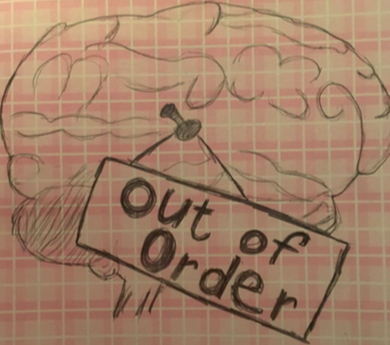By Alecia Sexton
Layout Manager
As college students, cognitive health and preservation may be the last things on our minds – no pun intended – but maybe it shouldn’t be. As we age, our bodies and brains function less efficiently and begin requiring more nourishing foods and more substantial interactions and activities in order to maintain their youthful qualities. According to the Mayo Clinic, it’s important to begin preserving brain cells and engaging in activities that promote their growth as soon as possible.
Research has shown that spending time with friends and family stimulates neurons and promotes regeneration of brain cells, since stimulating conversation and talking about new things everyday pushes the brain to expand its’ horizons. Other recommended activities include exercising on a regular basis. The National Center for Biotechnology Information encourages physical activity, since it increases blood flow to the brain, delivering more oxygen and nutrients as well as discouraging the formation of blood clots.
With Alzheimer’s disease affecting one in ten people (according to the World Health Organization) and with 7 percent of American’s developing mild cognitive decline annually, it’s better to start engaging in brain preserving activities and avoiding harmful ones as soon as possible. As enticing as drinking may be, especially in college, alcohol is one of the most common ways people negatively impact cognitive function. Studies show that frequent drinkers have decreased brain volume and reduced neurological function.
The National Institute of Health published an article in 2017 concluding that interacting with new people, volunteering for new things and making time to learn a new skill or hobby are the most effective ways to not only keep your mind active, but to increase your quality of life. The saying “life is too short to live the same day twice” is a perfect reflection and should help guide us into the future and lead us in our endeavors.
Editor’s Note: The Pioneer is not responsible for giving medical advice. Please reach out to a medical professional for serious concerns regarding personal health.





Be First to Comment